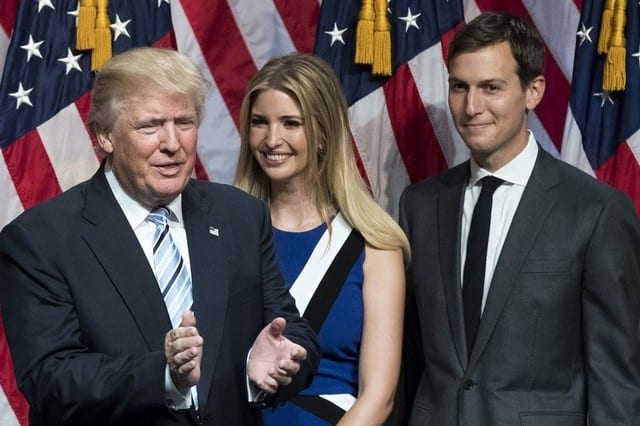German Foreign Minister Sigmar Gabriel has become the most prominent foreign leader to criticize Ivanka Trump’s role in her father’s administration, culminating in her visit to Berlin as part of the W20 summit on women’s empowerment.
Speaking to the German media group Funke, Mr Gabriel described Ivanka’s advisory role to President Donald Trump, her father, as “nepotism”, The Local reports.
He said: “For me there are things that remain strange, like for example the visit of his daughter to Germany which was treated almost like a world event, while the mix of politics with family and business reminds us instead of nepotism and would be unimaginable here.”
Finally, someone in the international community has voiced what nobody in the whole of the United States government, judiciary and the media is willing to say, at least, openly.
Yes, there have been murmurs and rumors about Mr Trump’s administration violating nepotism laws by employing his daughter Ivanka and son in-law Jared Kushner to very important positions in his administration.
Although nobody has come out to make an official accusations, there have been hints and innuendos thrown out here and there by both political opponents and television news talking heads, but, has President Trump actually violated America’s nepotism laws by appointing his family members to these very important positions?
The answer to that is no, surprisingly. If you take the letters of the US nepotism laws into consideration, the Trump administrations has not done anything wrong.
The wording of the United States nepotism law begins by describing “agency” as —
(A) an Executive agency;
(B) an office, agency, or other establishment in the legislative branch;
(C) an office, agency, or other establishment in the judicial branch; and
(D) the government of the District of Columbia;
Then it describes “public official” as an officer (including the President and a Member of Congress), a member of the uniformed service, an employee and any other individual, in whom is vested the authority by law, rule, or regulation, or to whom the authority has been delegated, to appoint, employ, promote, or advance individuals, or to recommend individuals for appointment, employment, promotion, or advancement in connection with employment in an agency; and
“relative” with respect to a public official, as an individual who is related to the public official as father, mother, son, daughter, brother, sister, uncle, aunt, first cousin, nephew, niece, husband, wife, father-in-law, mother-in-law, son-in-law, daughter-in-law, brother-in-law, sister-in-law, stepfather, stepmother, stepson, stepdaughter, stepbrother, stepsister, half brother, or half sister
The law states that: “A public official may not appoint, employ, promote, advance, or advocate for appointment, employment, promotion, or advancement, in or to a civilian position in the agency in which he is serving or over which he exercises jurisdiction or control any individual who is a relative of the public official. An individual may not be appointed, employed, promoted, or advanced in or to a civilian position in an agency if such appointment, employment, promotion, or advancement has been advocated by a public official, serving in or exercising jurisdiction or control over the agency, who is a relative of the individual.”
But then, it also states that “An individual appointed, employed, promoted, or advanced in violation of this section is not entitled to pay, and money may not be paid from the Treasury as pay to an individual so appointed, employed, promoted, or advanced.”
The Office of Personnel Management may prescribe regulations authorizing the temporary employment, in the event of emergencies resulting from natural disasters or similar unforeseen events or circumstances, of individuals whose employment would otherwise be prohibited by this section.
Finally, it states that “This section shall not be construed to prohibit the appointment of an individual who is a preference eligible in any case in which the passing over of that individual on a certificate of eligibles furnished under section 3317(a) of this title will result in the selection for appointment of an individual who is not a preference eligible.”
What this means is that within the letters of this law is the excuse which exonerates the president, or anybody else, from any guilt on breaking the law. The excuse, which the Trump administration is using in defense, is the part about not paying any individual appointed in violation of the law.
In March, Norman Eisen, the chief ethics counsel for Barack Obama, told CNN that Ivanka Trump’s appointment as adviser to the President was a “violation” of nepotism laws. The administration answered back that it didn’t violate the nepotism laws because what Ivanka holds is an unpaid position, and they’re right, as the law quoted above makes clear.
This is the reason why nobody is making any big issues about nepotism in the Trump administration, and nepotism it is, no doubt, but the law that is supposed to deter it is written in such a way that it makes a mockery of itself, for some reason.
Who wrote the law, and why put the antidote to the law in the same wording? Was this antidote put in there on purpose, or was it an oversight? Personally, I doubt that it’s an oversight, and if it’s not an oversight, then the implication isn’t good for our democracy.

